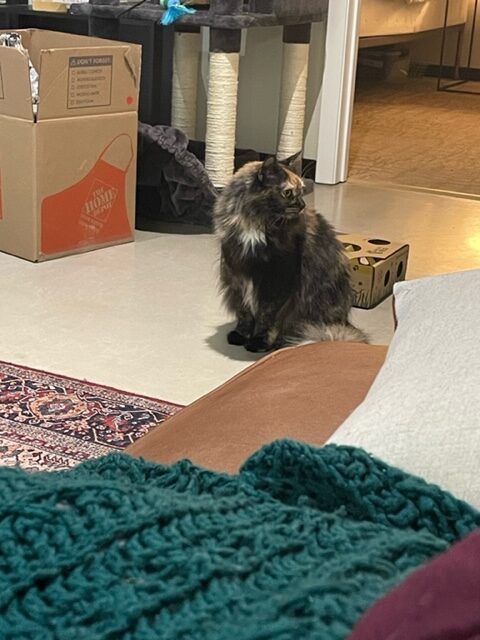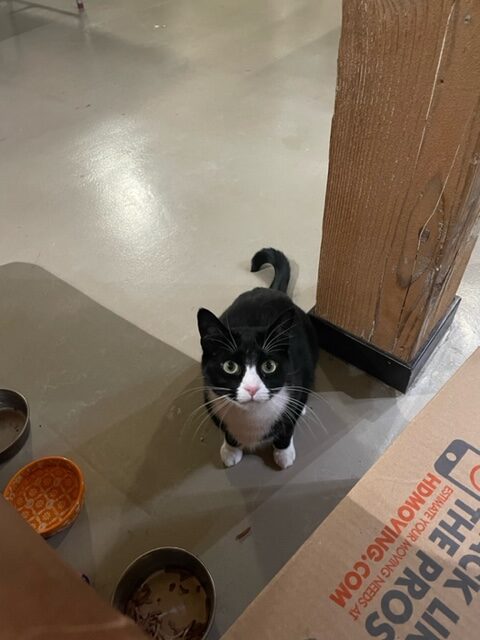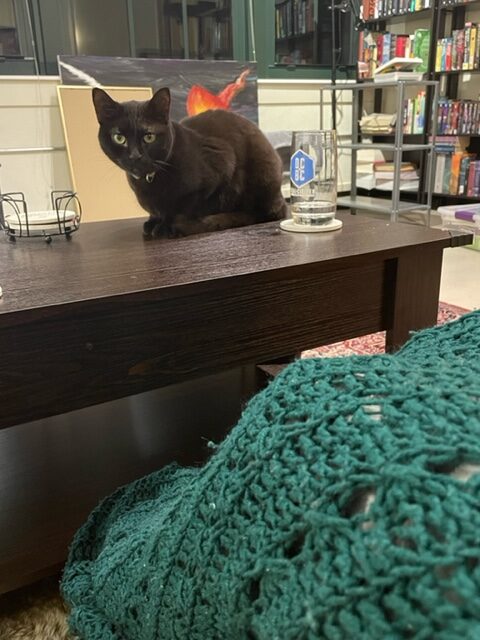It’s been a while since I wrote a post. The original idea was that I’d write a post on the 15th and the 30th (or end of the month). But when I made that plan I was traveling all the time for playwriting. After the pandemic, the posts got really insular and circular and I’m not sure how helpful that is.
I had this dream that one day this blog would turn into a book for emerging playwrights, to kind of show them the ups and downs, how I eventually “made it” in the end. But as I was writing the blog, I realized I don’t know that I believe in “making it” anymore.
I think you just keep going until you can’t anymore.

Someone recently asked me “what’s the most important lesson you’ve learned so far in the pandemic?” My honest answer was that I realized I didn’t need institutional theatre. That I learned in 2020 artists couldn’t depend on theatres to save us so we had to do it ourselves. And there’s this whole motivational speech that goes with it but for my last blog post (for now) I’d like to break down what that actually looks like.
Earlier this year, a person reached out to me because they wanted to do Well-Intentioned White People (WIWP). It was someone I’d worked with before and was excited to work with again. One of the main things I’ve said is since 2020, I want to work with people who have similar values to me. And I thought this person and I shared the same values.
Because I realize my plays aren’t incredibly accessible, here’s a quick summary of WIWP. Cass (Black/Afro-Latinx) comes to her car, seeing someone has scribbled the n word on her car. She wants to do nothing. Her ex-girlfriend and white roommate, insistent that “things like that don’t happen” in towns like theirs, forces Cass into action. Then the Dean of the university, also white, forces Cass and Cass’ best friend, Parker (trans, Latinx) to plan a unity day. There’s also a student named Mara (also white) who is problematic as hell who is supposed to be helping. By the end of it, Cass and Parker realize what most people of color all know. We don’t need allies anymore; we need accomplices.
Well, this person asked for a couple of proposed changes. First, she asked if Dean West could be played by a Black person. The play is about white (passive) violence specifically so no. Dean West has to be played by a white woman. I was told they couldn’t find a white woman.
Um, okay.

Also, in the play, both Dean West and Mara, who are both white, say “n*gger”. They don’t say it at Cass but they say it in front of her. I was asked if this could change. I said no. The play is about white violence. Taking that out reduces the harm and weakens the play. I suggested it’d be a good time to learn the history why we say “the n word” instead of “n*gger” and how that got started. Since this was a college, it would be an academic conversation.
Plus a lot of people don’t seem to know or remember that before the OJ trial, socially many white people thought it was okay to say n*gger as long as they were quoting, which is exactly what Mara and Dean West are doing. They didn’t think it was harmful and it’s pretty recent in our history that we say “the n word” instead of the word.
(I’d hyperlink my source but, if you didn’t know this, go look it up on your own. The expectation shouldn’t be on Black people to educate other people about our shared history.)
Anyway, I heard nothing back. Months later, I reached out to my agent to ask what happened with the production. They had canceled it because the playwright (me) was impossible to work with. This was a person I knew and she didn’t even bother to text me. That’s $650 I lost which isn’t a small amount of money. All because I asked the play to be performed the way it was written.
And now I’m difficult (again).

It gets harder and harder to know who’s on your team and who isn’t. It’s not something you learn and then that’s it. You’re constantly re-learning. Re-discovering. And what hurts the most is when someone on your own team betrays you.
That’s the hardest to bounce back from.
I stand behind my “no’s” but I realize it’s almost important to say it comes with a cost, sometimes a literal one. I’ve been asked why I’m not produced more. I joked that I’m about three years ahead of theatre so the world better watch out in 2025. And while I’m kind of kidding, I’m also not. I wrote WIWP in 2017 and now people are talking about how relevant it is in the 2020s and how I must’ve just written it.
Things take time, I guess.
Ultimately, I believe playwrights should absolutely stand our ground. Back to what I learned in the pandemic, institutional theatre has to choose between profit and overall structural change right now. Most of them won’t make the right choice so we’re going to have to be really smart about how we move forward.
And if I’ve ever said I’m on your team, I 100% meant it and I still do.

Thank you so much for reading this blog! I’m not stepping away forever but I am definitely stepping away for a while as I try to decide how to best adapt a travel blog if I’m not traveling. It’s been so fun hearing about how people have stumbled across this or even friends who read it pretty regularly. I hope this blog has helped you in one way or another and if it hasn’t I hope it’s at least made you laugh.
See you in a bit,
Rachel